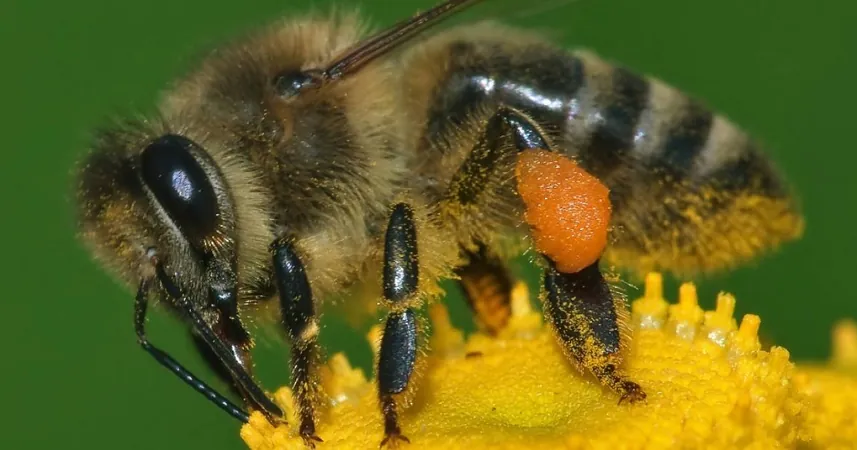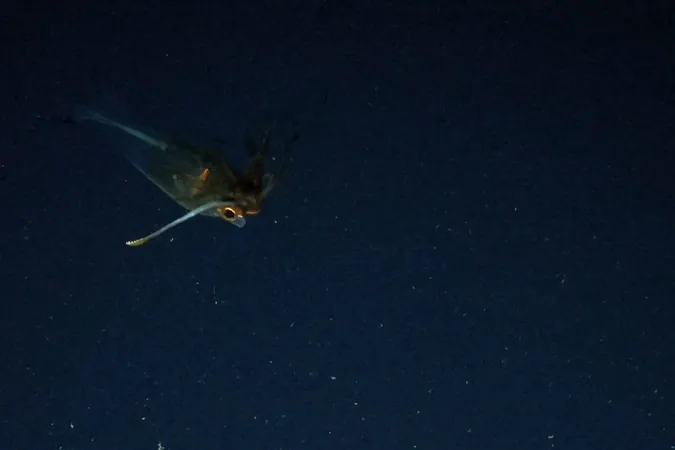
Unraveling the Mystery: What’s Threatening Our Bees in Northern Alberta?
2025-04-14
Author: Jacob
Researchers in Northern Alberta are embarking on a crucial mission, armed with $195,000 in new funding to uncover solutions that could ensure the survival of honey bees, a cornerstone of Canada's agricultural economy.
The National Bee Diagnostic Centre (NBDC) at Northwestern Polytechnic is set to investigate the devastating impact of the Varroa destructor mite—recognized as a leading threat to bee colonies. This insidious parasite clings to honey bees, weakening their immune systems and ultimately threatening the entire hive.
"The Varroa destructor is a major danger to honey bee health, making our research critical for finding effective solutions to combat this parasite," explained Clinton Dobson, RDAR's vice president of research.
Worryingly, these mites have infiltrated about 80% of Canadian apiaries, spreading their destructive influence since first appearing in Canada in 1989. Patricia Wolf Veiga, acting dean of NWP Applied Research and Innovation, noted that these pests have also been detected extensively in the Peace Region.
To tackle this escalating issue, the NBDC plans to examine Varroa mite populations across the nation, aiming to identify genetic mutations that have enabled resistance to common treatments.
Historically, Amitraz has been the go-to acaricide for managing Varroa mites, but beekeepers across North America and Europe are now encountering alarming reductions in its effectiveness as the mites evolve.
Collaboration will be key, with NBDC partnering with scientists, beekeepers, and government agencies to inform future agricultural policies critical for the industry's survival.
In Canada, honey production is not just sweet—it’s a $278 million industry, generating an additional $4 to $5.5 billion through vital pollination services for crops. This project aligns with objectives to enhance the sustainability and profitability of Alberta's agriculture, enabling researchers to find new ways to battle this destructive pest.
With this initiative, Alberta takes a significant step toward safeguarding a vital component of its agricultural ecosystem—ensuring that bees continue to pollinate our crops and sustain our food production.









 Brasil (PT)
Brasil (PT)
 Canada (EN)
Canada (EN)
 Chile (ES)
Chile (ES)
 Česko (CS)
Česko (CS)
 대한민국 (KO)
대한민국 (KO)
 España (ES)
España (ES)
 France (FR)
France (FR)
 Hong Kong (EN)
Hong Kong (EN)
 Italia (IT)
Italia (IT)
 日本 (JA)
日本 (JA)
 Magyarország (HU)
Magyarország (HU)
 Norge (NO)
Norge (NO)
 Polska (PL)
Polska (PL)
 Schweiz (DE)
Schweiz (DE)
 Singapore (EN)
Singapore (EN)
 Sverige (SV)
Sverige (SV)
 Suomi (FI)
Suomi (FI)
 Türkiye (TR)
Türkiye (TR)
 الإمارات العربية المتحدة (AR)
الإمارات العربية المتحدة (AR)